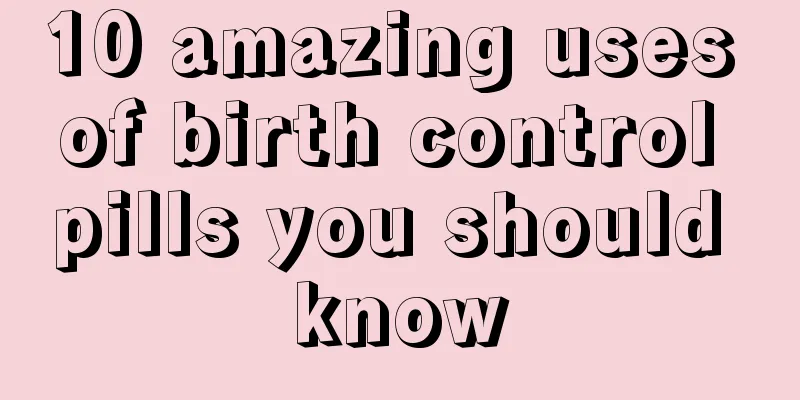What should I pay attention to when taking birth control pills?

|
Oral contraceptives are widely used among young men and women, mainly because women in this group generally do not have IUDs installed and do not have time to use condoms during sexual intercourse. Therefore, most women choose to take birth control pills, thinking that this is more convenient. So are there any precautions when using birth control pills? The editor will give a detailed explanation below. 1. Pay attention to the storage of medicines. The active ingredients of contraceptive drugs are on the sugar coating. Keep the drugs intact and do not allow them to get damp, deteriorate, melt or crack. Otherwise, the contraceptive effect will be affected and vaginal bleeding will be caused. Do not take the tablets with wet hands to prevent the active ingredients of the drugs from being lost. Medicines should be kept in a cool, dry, safe cupboard or cabinet to prevent children from mistakenly taking them for candies and causing adverse reactions. 2. Take the medicine strictly as prescribed. Regardless of whether the menstruation is over at that time, you must start taking the medicine on the 7th day of the menstruation at the latest. If you take it late, ovulation cannot be suppressed, which will affect the contraceptive effect. 3. If you still don’t have your period 7 days after taking 21 short-acting contraceptive pills, you should start taking next month’s contraceptive pills that night. If you miss your period for 2 consecutive months, you should stop taking the medication and check the cause. At this time, you should still take other contraceptive measures to avoid pregnancy. You can continue to take short-acting contraceptive pills after your menstruation resumes. 4. If you need to change contraceptive pills, you should change them on a monthly basis. Do not take two short-acting contraceptives at the same time in one month. You must stop taking the medicine on a monthly basis. You cannot take the medicine continuously for a long time. The body will be affected by a large amount of hormones, which may cause amenorrhea. Sometimes stopping the medicine may cause heavy bleeding or infection. 5. Finally, pay attention to vulvar hygiene during use. Generally speaking, after taking birth control pills for about half a year, you must stop taking them for 2 to 3 months. Most of today's short-acting contraceptives must be stopped for 7 days after being taken for 21 days to give the ovaries time to recover. Here the editor has clearly explained the precautions for contraceptives. For people who are inclined to take them, they need to read them in detail several times in order to achieve the purpose of correct and scientific use of the drugs. In addition, the editor would like to remind you that contraceptive pills have great toxic side effects, so it is best not to take them unless absolutely necessary. |
<<: What are the specific side effects of oral contraceptives?
>>: What are the side effects of long-term oral contraceptives?
Recommend
6 things women value most in men
1. Potential This potential includes boys' va...
What kind of exercise can enhance sexual ability?
The increase in work pressure has caused many peo...
5 best times for women to teach their husbands
It is said that a good woman is a good school. Me...
Can you judge a man’s sexual ability from his fingers and tongue?
Judging sexual ability from fingers is an ancient...
7 shocking body changes when men and women are in love
People often say that love is the best skin care ...
"Drunk and promiscuous sex" seriously harms health
"Sex after drinking" often appears in T...
What are the benefits of having sex for women?
Influenced by traditional concepts, many women ar...
The 8 most confusing sex myths
We have some "conventional" misundersta...
Three major sequelae of excessive sexual indulgence in women
In the history of our country, many people have d...
In the moment of love, this thing of women is the key
Having sex is something every couple does, and it...
96% of women want to be kissed the most
Kissing has always been the most intimate way for...
All women in the world should learn this killer move
It is said that women who act coquettishly have t...
Reasons for female contraceptive ring to fall off
Safe period contraception, condom contraception, ...
What's the matter with a little blood after sex?
In folk culture, people refer to sexual life as &...
7 tips on sex skills to make him want you
Being mature does not necessarily mean being char...









